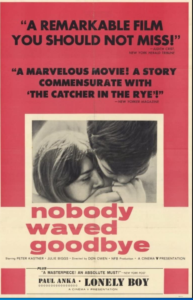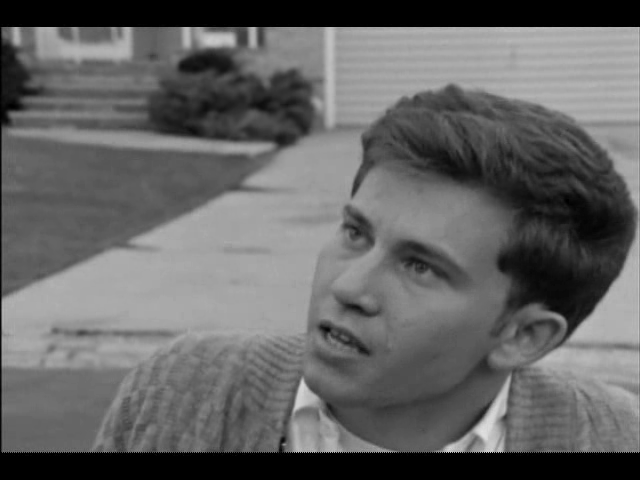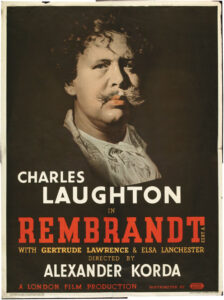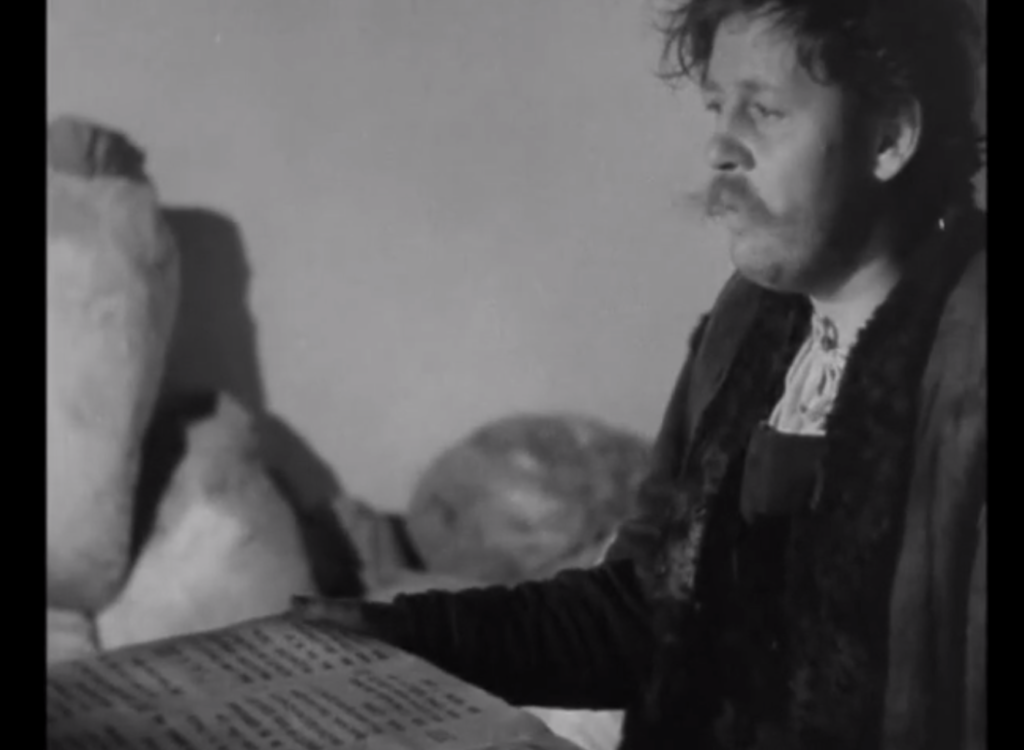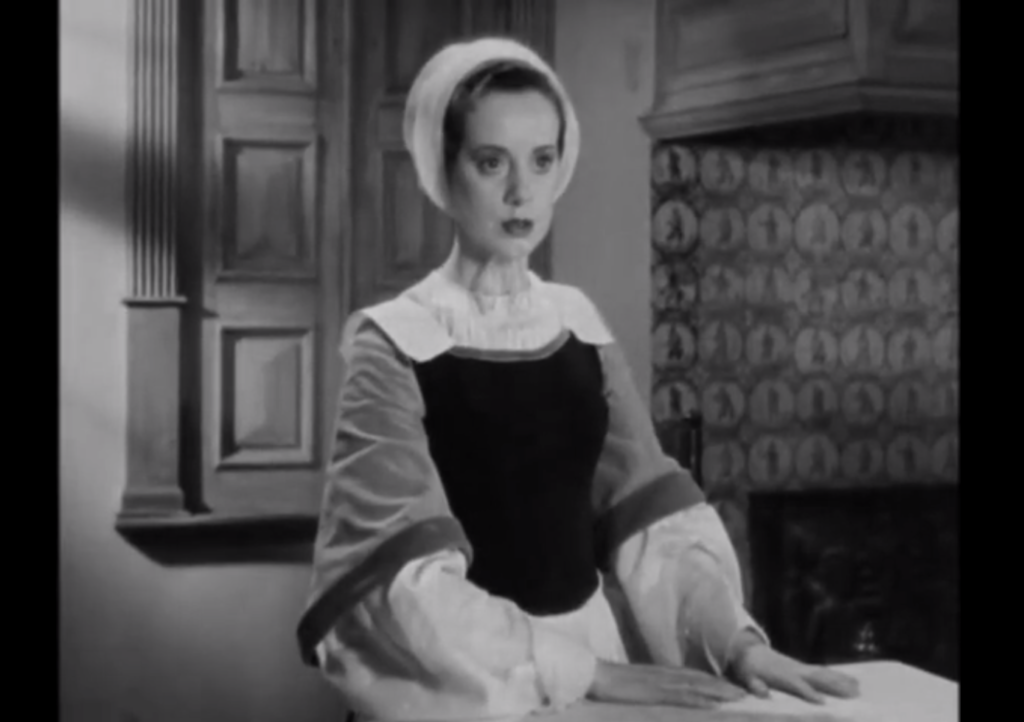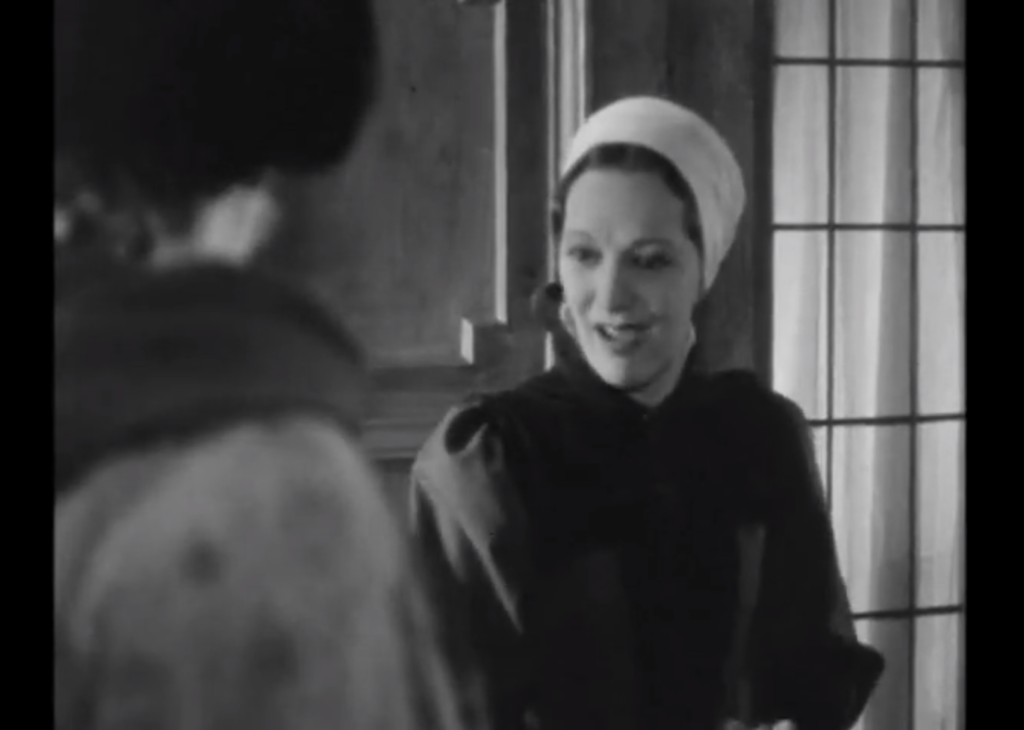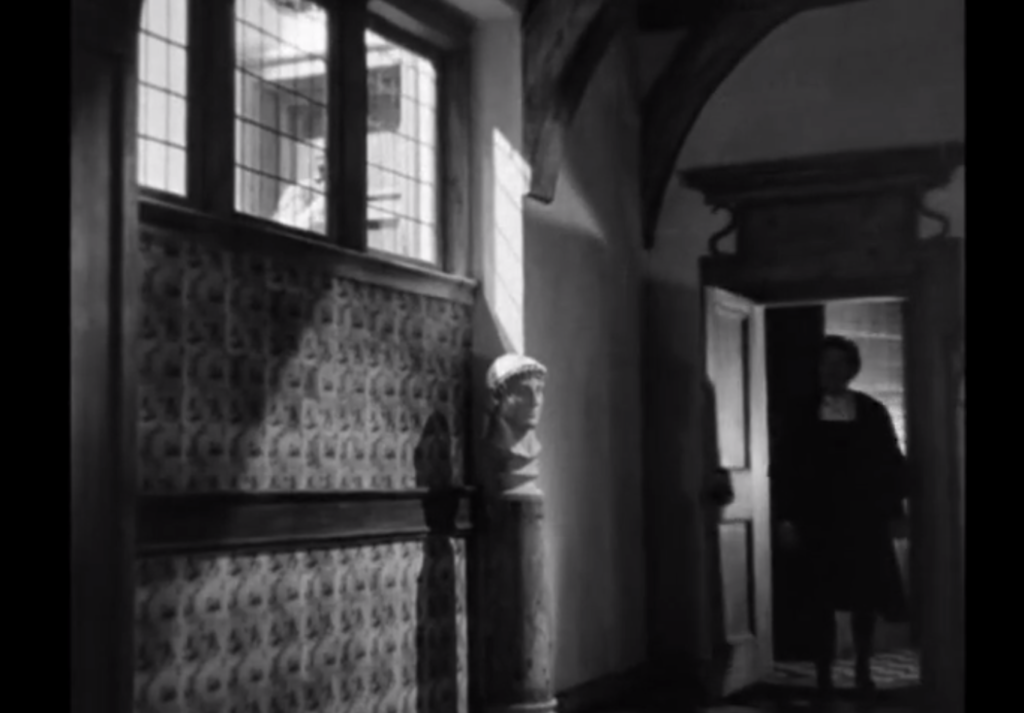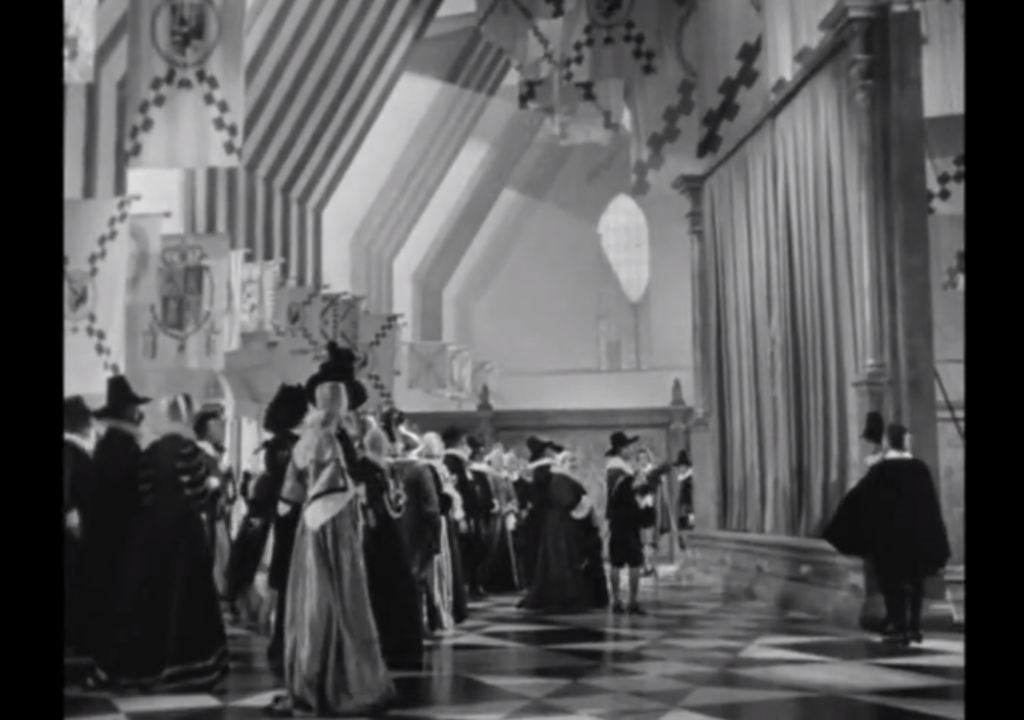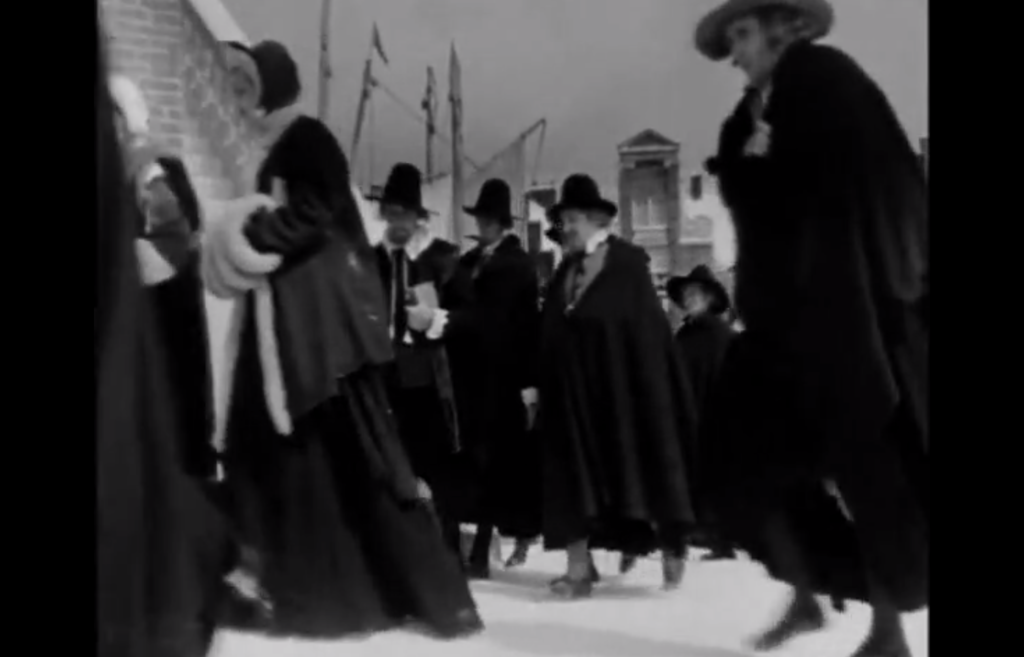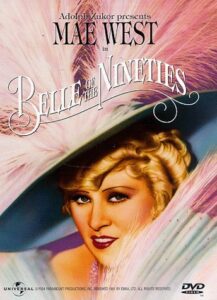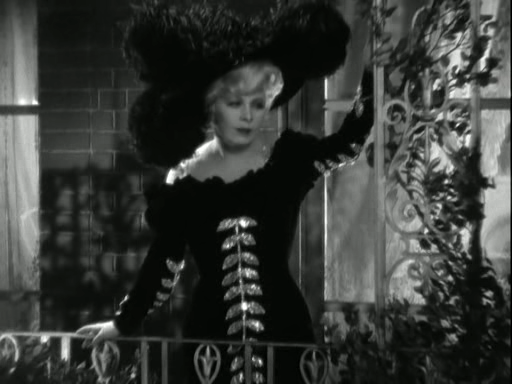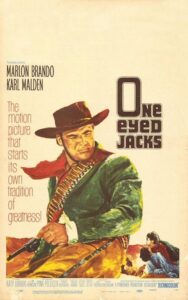|
Genres, Themes, Actors, and Directors:
- Ben Johnson Films
- Elisha Cook Jr. Films
- Karl Malden Films
- Marlon Brando Films
- Outlaws
- Revenge
- Westerns
Response to Peary’s Review:
Peary argues that this “lone directorial effort” by Marlon Brando — with an original running time of 4 hours and 42 minutes, cut down to 141 minutes by the studio — is a “visually impressive but muddled psychological western”. While it’s easy to see how Brando might have stretched the story to go deeper into the characters’ psyches and motivations, however, the story itself is never hard to follow, and the narrative works just fine. One-Eyed Jacks (based on a novel by Charles Neider) is essentially a revenge tale, made more complex by the fact that Brando’s character (Rio) decides not to automatically confront and kill his former partner when he first encounters him after five long years in prison. Instead, he initiates a game of cat-and-mouse, baiting “Dad” (Malden) into believing all is forgiven and forgotten. This maneuver actually makes sense, given what we know already about Rio’s crafty ways: he’s a liar and manipulator, someone who will do and say anything to bed a pretty woman, for instance. Indeed, Rio’s very much an anti-hero, yet we can’t help rooting for him given his hiss-worthy nemesis — Malden’s conniving, two-faced, social climbing sheriff.

The aspect of the story that works least well is Rio’s star-crossed romance with Malden’s stepdaughter (Pina Pellicer), who comes across as far too willing to forgive Rio’s lies and welcome him back into her embrace (were there explanatory scenes cut from the longer version??). Yet Pellicer (who, sadly, took her own life just a few years after this film was released) has such a winning presence and an unusual beauty that we can’t help enjoying her whenever she’s on-screen, despite how little she’s given to work with. Indeed, nearly the entire western is pleasant to watch, given the inspired decision to establish the setting along California’s Monterey coast, with dramatic waves crashing in the background during numerous key scenes.

Malden himself is nicely cast against type in a complex villainous role; and while Peary argues that Brando is simply patterning his performance after Elvis Presley and other “fifties rebels”, I find his tortured portrayal of Rio to be convincing. Equally impressive is the fine supporting cast — most notably Ben Johnson as a hardcore baddie who hooks up with Rio after his escape from prison, and Katy Jurado in a tiny but effective role as Malden’s wife.
Redeeming Qualities and Moments:
- Marlon Brando as Rio

- Karl Malden as Dad

- Pina Pellicer as Louisa

- Fine supporting performances by Ben Johnson, Kary Jurado, and others

- Charles Lang’s cinematography

Must See?
Yes, for its historical relevance as Brando’s lone directorial effort. Discussed at length in Peary’s Cult Movies 3.
Categories
(Listed in 1001 Movies You Must See Before You Die)
Links:
|
